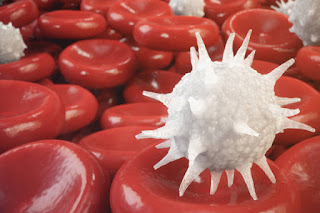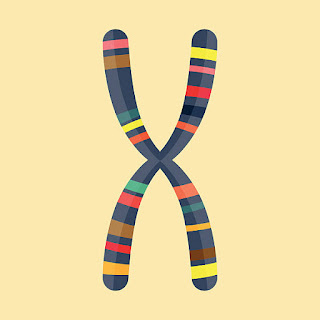What are white blood cells or leukocytes?
They are colorless and they are the mobile units of bodies protective system, they have defensive action.
They have nucleus, short life span, large in size and have defensive action.
Your blood is formed from red blood cells, white blood cells, platelets, and plasma.
Your white blood cells account for less than about 1% of your blood, but their impact is big. White blood cells also are called leukocytes. They protect you against illness and disease.
Think that white blood cells as your immunity cells. during a sense, they're always at war. They flow in the bloodstream to fight against viruses, bacteria, and other foreign invaders.
When your body is in distress and a specific area is under fire , white blood cells rush in to assist destroy the harmful substance and stop illness.
White blood cells are created in the bone marrow. they're stored in your blood and lymph tissues. Because some white blood cells have a brief lifetime of 1 to three days, your bone marrow is usually making them.
Types of white blood cells
Among your white blood cells are:
Monocytes:
They swell into macrophages and phagocytise bacteria.
Lymphocytes:
They are involved in immune response.
They form trephones from plasma protein.
Neutrophils.
They kill and digest bacteria and fungi. They are weak in action.
They travel through the capillary and reach on the site of wound and phagocytise bacteria.
Basophils.
These small cells seem to sound an alarm when infectious agents invade your blood. They secrete chemicals like histamine, which participate in allergic reaction and also cause deletion of blood vessels.
They also secrete IgE antibody.
Eosinophils:
Detoxify paracites and allergic substance.
In allergic reaction they attach to the parasites and kill them by releasing hydrolytic enzymes.
Problems affecting white blood cells
Your white blood corpuscle count are often low for variety of reasons. This includes when something is destroying the cells more quickly than the body can replenish them. Or when the bone marrow stops making enough white blood cells to stay you healthy. When your white blood corpuscle count is low, you're at great risk for any illness or infection, which may spiral into a significant health threat.
Your healthcare provider can do a biopsy to ascertain whether your white blood corpuscle count is normal. If your count is just too low or too high, you'll have a white blood corpuscle disorder.
A number of diseases and conditions may affect white blood corpuscle levels:
Weak immune system:
This is often often caused by illnesses like HIV/AIDS or by cancer treatment. Cancer treatments like chemotherapy or radiotherapy can destroy white blood cells and leave you in danger for infection.
Infection:
A higher-than-normal white blood corpuscle count usually means you've got some sort of infection. White blood cells are multiplying to destroy the bacteria or virus.
Myelodysplastic syndrome:
This condition causes abnormal production of blood cells. This includes white blood cells within the bone marrow.
Cancer of the blood:
Cancers including leukemia and lymphoma can cause uncontrolled growth of an abnormal sort of blood corpuscle within the bone marrow. This leads to a greatly increased risk for infection or serious bleeding.
Myeloproliferative disorder:
This disorder refers to varied conditions that trigger the excessive production of immature blood cells. this will end in an unhealthy balance of all kinds of blood cells within the bone marrow and too many or too few white blood cells within the blood.
Medicines:
Some medicines can raise or lower the body's white blood corpuscle count.




Comments
Post a Comment